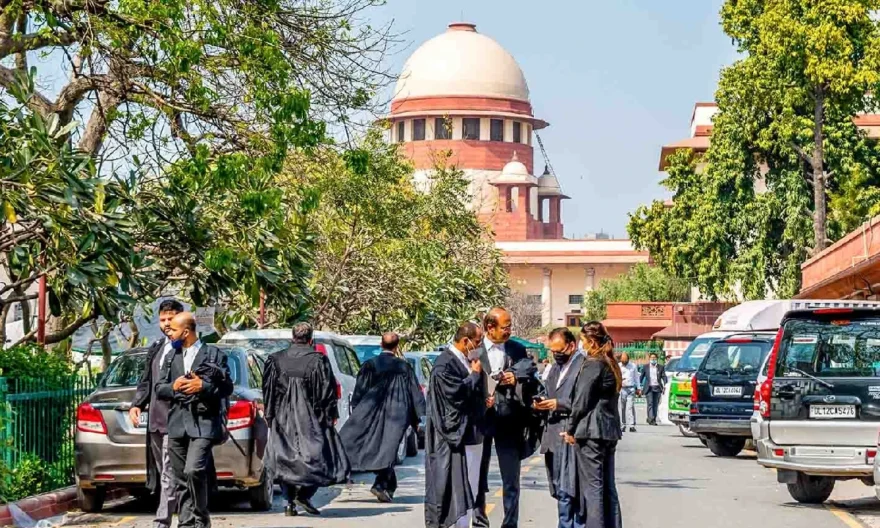
The Supreme Court on Monday dismissed a petition challenging the designation of lawyers as senior advocates, asserting that the mechanism for granting this designation was not arbitrary.
A bench led by Justice Sanjay Kishan Kaul, while delivering its verdict on a plea filed by advocate Mathews J Nedumpara and seven others, deemed the writ petition as a “misadventure,” largely attributable to Nedumpara, “in continuation of some of his past misadventures.”
The bench, while dismissing the plea, stated, “If one may say, the indulgence to the junior members of the bar, in a sense, is more than to a senior member because it is also a part of the duty of the bench to help in the evolution of the bar.”
“We have thus not the slightest hesitation in coming to the conclusion that the writ petition is a misadventure, largely of petitioner number one (Nedumpara), in continuation of some of his past misadventures,” it added.
The Apex Court noted that previous judgments and orders issued by the court seemed to have had no beneficial impact on petitioner number one for self-introspection.
The petitioners had challenged sections 16 and 23 (5) of the Advocates Act, 1961, contending that these provisions “create two classes of lawyers, senior advocates and other advocates, which, in actual practice, has resulted in unthinkable catastrophe and inequities, which Parliament certainly would not have contemplated or foreseen.”
Section 16 of the Advocates Act relates to senior and other advocates, while section 23 (5) specifies that senior advocates shall have precedence over other lawyers, and their right of precedence among themselves shall be determined by their respective seniority.
The plea argued that the designation of lawyers as senior advocates, establishing a special class with unique rights, privileges, and status not available to ordinary advocates, is unconstitutional and violates the mandate of equality under Article 14.
In March 2019, the Supreme Court had sentenced Nedumpara to three months in jail for contempt of court and attempting to “browbeat” judges but suspended the sentence after he tendered an unconditional apology. The court had also barred him from practicing before it for a year.
During the plea regarding the senior advocate designation, the bench referred to its 2017 verdict, which provided guidelines for the exercise of designating lawyers as senior advocates. The verdict established a “Committee for Designation of Senior Advocates” to oversee these matters, consisting of the Chief Justice, the two most senior judges of the court or high court, and a nominated member of the Bar.
In May, the Supreme Court delivered another judgment on applications seeking modifications in these guidelines, emphasizing that the designation of “senior advocate” should be conducted at least once a year, as it has always been considered an “honour conferred.”




